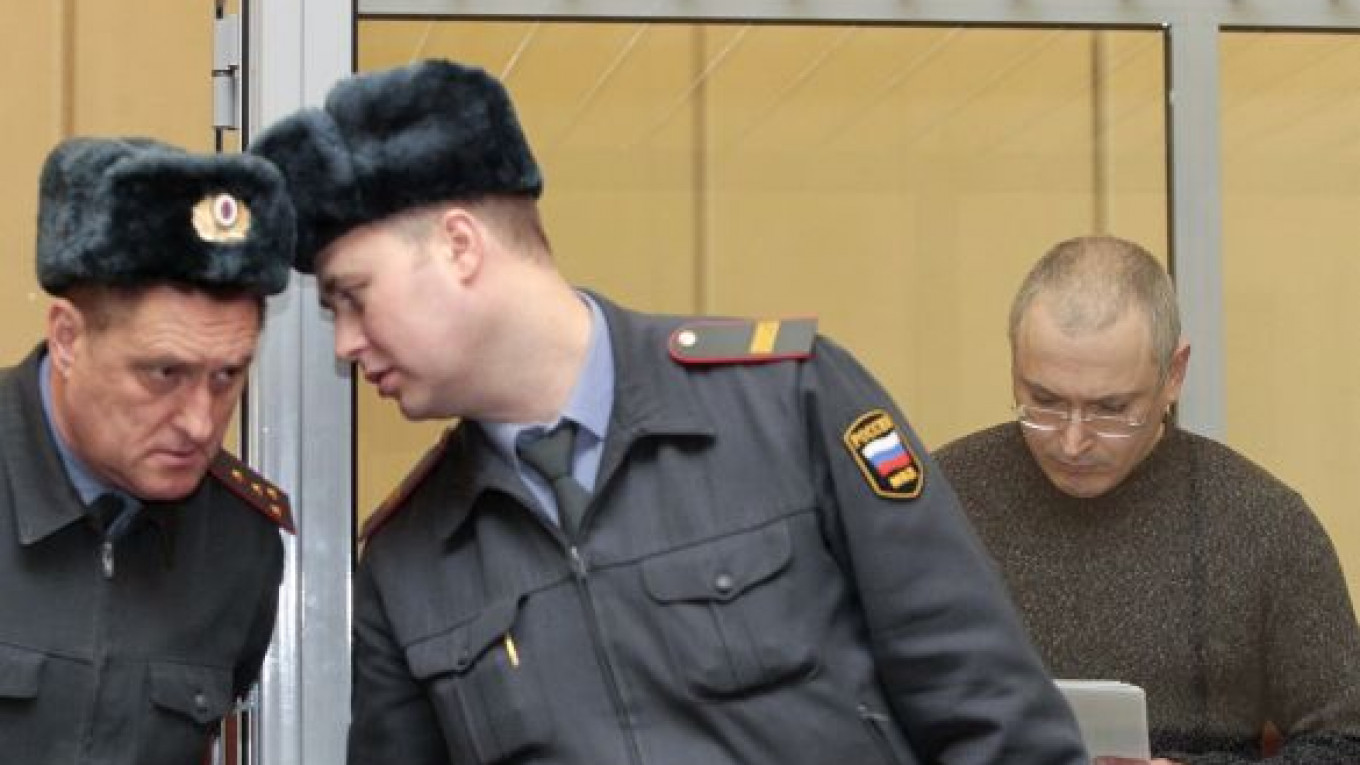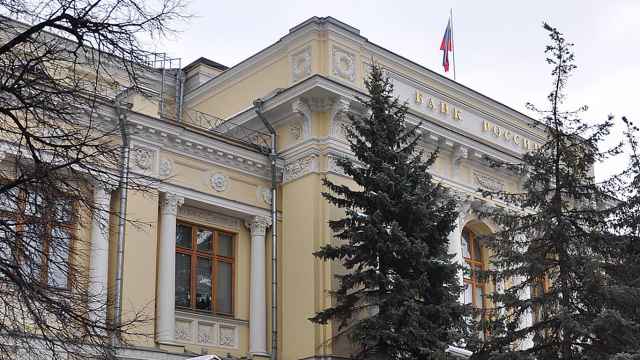A second former court official has accused the Moscow City Court of interfering in a lower court's trial of Mikhail Khodorkovsky — even as the Supreme Court awarded the jailed former Yukos CEO a minor victory.
Igor Kravchenko, a former administrator at the Khamovnichesky District Court that tried Khodorkovsky last year during his second trial, told Novaya Gazeta that Judge Viktor Danilkin has admitted to taking orders from other people.
"About the process this is what he said: 'In principle, I don't decide this. Whatever they say, that's what will be,'" Kravchenko said in an interview published Friday.
He said he "took advice from the Moscow City Court" whenever he had questions on the case.
Moscow City Court spokeswoman Anna Usachyova refuted the accusation, calling upon the media "not to suck news out of their thumb."
Kravchenko is the second former court official to accuse Danilkin of failing to act independently, which the judge himself has repeatedly denied but many observers have long suspected.
A former assistant to Danilkin who acted as the court's spokeswoman came out in February to say the guilty verdict was imposed upon him when it became clear that his own ruling would not please top government officials.
"Danilkin began to write the verdict. I suspect that what was in that verdict did not suit his higher ups, and therefore he received another verdict, which he had to read," Natalya Vasilyeva said at the time in an interview broadcast on the cable television channel Dozhd. Vasilyeva said Moscow City Court wrote the verdict.
"Vasilyeva's interview is the truth," Kravchenko was quoted as saying Friday. "She didn't say anything that people didn't already know. Lots of people can confirm her words."
Meanwhile, the Supreme Court on Friday ruled in favor of Khodorkovsky in an appeal against his prolonged detention in the final months of his second trial.
The Supreme Court overturned lower court decisions to keep Khodorkovsky and his co-defendant Platon Lebedev in pretrial detention from late August to November 2010, granting an appeal from their lawyers.
The appeal was based on legislation enacted early last year by President Dmitry Medvedev enabling suspects accused of some economic crimes to avoid pretrial detention.
Khodorkovsky told the Supreme Court that his case showed that courts had continued to jail economic crimes suspects who should not be behind bars, calling it "systematic sabotage of the reforms announced by the president."
"While your decision, respected court, will not have a direct effect on my fate or that of Platon Lebedev, it will have fundamental importance," he told the three-judge panel.
His lawyer Vadim Klyuvgant, however, suggested that the ruling was a cosmetic effort to show Medvedev's reforms were working and improve Russia's image.
"The situation is so crazy and so lacking in practical consequences that it was possible [for the court] to completely painlessly demonstrate that sometimes in Russia, even in this case, there are reasonable rulings," he said.
The ruling did not mean that Khodorkovsky should have been freed last year, because he was serving a prison sentence handed down in 2005 after an initial trial on fraud and tax evasion charges.
He had been set for release later this year, but Judge Danilkin sentenced him to six more years on Dec. 30 after convicting him of multibillion-dollar theft and money-laundering charges.
Supporters said Khodorkovsky's first trial was part of a Kremlin campaign to punish him for perceived challenges to Vladimir Putin, who was president at the time, and to tighten state control over the country's oil reserves.
Once Russia's biggest oil producer, Yukos was bankrupted by back-tax claims after Khodorkovsky was arrested in 2003, and its assets were sold off at auction, with its main production subsidiaries ending up in the hands of state-run Rosneft.
Khodorkovsky has appealed against his second conviction, but hearings have not yet begun.
(AP, Reuters, MT)
A Message from The Moscow Times:
Dear readers,
We are facing unprecedented challenges. Russia's Prosecutor General's Office has designated The Moscow Times as an "undesirable" organization, criminalizing our work and putting our staff at risk of prosecution. This follows our earlier unjust labeling as a "foreign agent."
These actions are direct attempts to silence independent journalism in Russia. The authorities claim our work "discredits the decisions of the Russian leadership." We see things differently: we strive to provide accurate, unbiased reporting on Russia.
We, the journalists of The Moscow Times, refuse to be silenced. But to continue our work, we need your help.
Your support, no matter how small, makes a world of difference. If you can, please support us monthly starting from just $2. It's quick to set up, and every contribution makes a significant impact.
By supporting The Moscow Times, you're defending open, independent journalism in the face of repression. Thank you for standing with us.
Remind me later.






